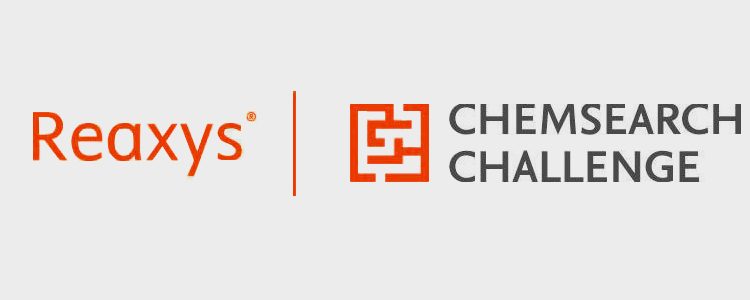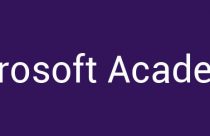Reaxys: Chemistry Search Engine by Elsevier

Reaxys is a web-based tool that was launched in 2009 and is licensed by Elsevier. It allows chemists to retrieve chemistry information and data from published literature, such as journals and patents. The information it provides includes chemical compounds, chemical reactions, chemical properties, related bibliographic data, substance data with synthesis planning information, as well as experimental procedures from selected journals and chemical patents. Reaxys was formerly known as the CrossFire database. This tool serves as a chemistry database allowing researchers to access historical and current, relevant, organic, inorganic, and organometallic chemistry information, from reliable sources using an easy-to-use interface.
The content in this database covers more than 200 years of chemistry and is basically an online chemical encyclopedia that contains relevant information for more than 7 million organic chemical compounds, inorganic compounds, and chemical and life sciences patents from the United States and the rest of the world. Currently, when new data is added it is drawn from selected journals and chemistry patents, wherein each reaction or substance data has to meet three conditions. It must have a chemical structure, must be supported by an experimental fact, and have a credible citation.
Who uses Reaxys?
The goal in designing Reaxys was to enable chemistry research to reach new heights and is also meant to aid a number of organizations worldwide, including the pharmaceutical industry, chemical companies, and academic institutions. Pharmaceutical companies use Reaxys to boost drug development success and efficiency. It allows chemists to filter through potential compounds and obtain a promising set of hits. Reaxys benefits chemical companies because it aids in the development of chemical products by helping chemists optimize synthesis reactions and identify the required chemical properties in intermediate and end products. It also contributes to academia, because faculty and students at educational institutions use the tool to access and investigate chemistry literature and data, thus helping academic institutions to produce first-rate future chemists.
New Updates to Reaxys
Since its first launch, there have been regular releases and enhancements to Reaxys bringing us to the latest product release that has been specifically tailored based on user requirements, innovative use of technology, and rigorous customer testing. This release promises to be a new gold standard for chemistry research tools. In addition, the new version now has an enhanced and streamlined user interface that includes the addition of critical patents and literature, a powerful new layer of indexing and data excerption, and is easier to integrate with existing informatics environments.
The new search, analysis, and workflow tools are designed to meet the needs of the users. Overall, the goal of this new release is to ensure that even beginners can promptly get answers to questions, thus providing chemists with the shortest path to chemistry literature, data, and success. Here are several of the changes that were made in this release.
- Ease of use: The interface is now simplified making it easy for even novice users to quickly become experts. At the same time, experienced users will find it very capable of doing everything they expect it to do. For example, now, when performing a literature search, input into only one search field is required to start getting results.
- Expanded content: The patent content now includes Asian language patents from Japan, South Korea, China, and Taiwan. In 2016, over 650,000 new compounds were added from Asian patents.
- Better indexing: This release has also improved indexing capabilities, which covers more of the literature and searchable compounds. This includes being able to retrieve compound properties and reaction data from the full texts of over 16,000 journals and the entire patent content in Reaxys.
- Improved integration: Reaxys now has an enhanced application program interface (API) that helps chemoinformaticians, medicinal chemists, and computational chemists query the database using their chosen system to then export the data to modeling tools.
ChemSearch Challenge
In 2015, Elsevier launched the ChemSearch Challenge. Scientific output is doubling every nine years and this is being distributed through a growing number of digital channels making it more challenging for chemists to find relevant data quickly. The goal of the ChemSearch Challenge is to provide an assessment of the relative merit of different approaches of searching chemistry databases. In 2015, the challenge attracted nearly 1,700 participants from 442 companies and academic and government institutions around the world. The participants were given chemistry challenges and were allowed to use any chemistry search tool to solve the challenge questions. The first round of the challenge revealed that Reaxys users were able to find the correct answer more than twice as fast as users of any other chemistry research database. In 2016, Elsevier announced the second challenge, however, this time it provided all the challenge players with access to Reaxys through the ChemSearch Challenge platform. By completing one challenge, the users get a free 30-day trial of Reaxys.
The 2016 challenge, is a series of 8 weekly online challenges for future and professional chemists to compete based on their chemistry search skills. The participants compete based on the speed and accuracy of their answers which helps them earn badges. The winners are announced each week, and Elsevier donates $200 to one of five charities in the winners’ name. The results of these challenges provide Elsevier with information about how the chemistry community can identify and understand bottlenecks in search tools and produce better products for chemists.









